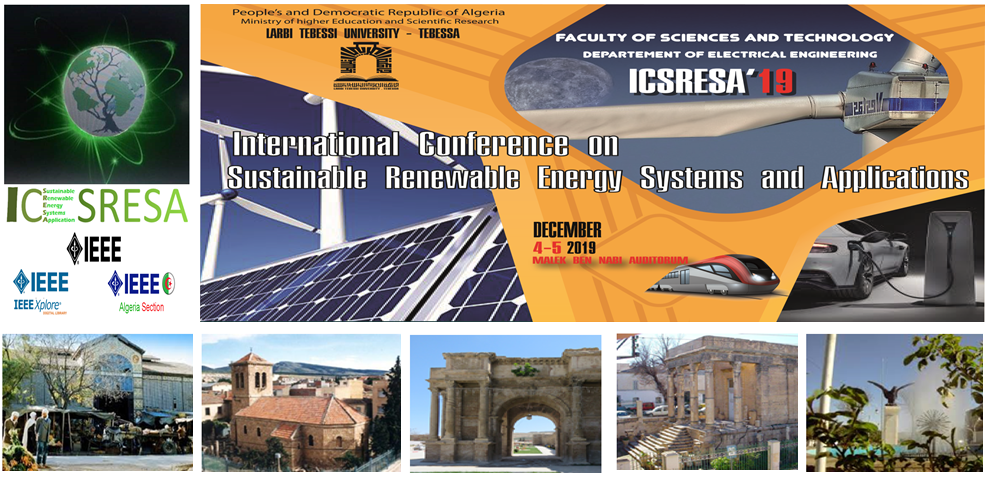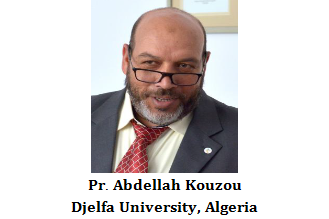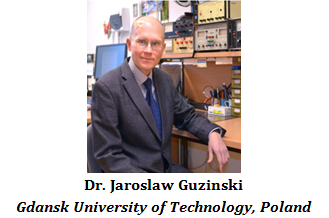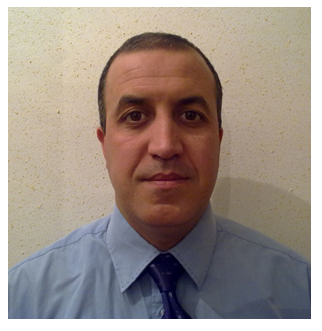
|
|
|
WorkshopThe International Conference on Sustainable Renewable Energy Systems and Applications. ICSRESA'19
News : 1. Due to the inability of Dr. Jaroslaw Guzinski to attend due to special circumstances that prevented him from attending, the workshop 1 will be presented by Pr. Abdalla Kouzou only. 2. Participants in the workshops should bring their personal Laptop with Matlab installed.
************ Workshop 1 ************
Control and Applications of Multi-phase Induction Machines
Abstract: Multiphase induction machines are attracting an increasing attention due to their inherent advantages over three-phase machines, e.g. reduced per phase power rating, improved reliability and increased degrees of freedom. Compared with three-phase Induction machines, variable speed multiphase induction machine provide a higher power range by utilizing low-power switching devices, due to the higher number of inverter phase legs and higher torque density. These properties are in particular important for applications in which power supply voltage is limited, the torque oscillation amplitude is required to be decreased and the fault tolerant ability is required. Indeed, the fault-tolerance capability is one of the most attractive properties of multiphase machines for industrial applications. Especially, for drive systems with high reliability in non-stop operation conditions, which are known for high economical and safety repercussions caused by fault occurrence, e.g. in electrical vehicles, traction, ship propulsion, and other safety-critical applications such as electrical helicopters. The workshop will deliver the base knowledge on multiphase induction motor drives. The mathematical model, exemplary motor constructions, drive control methods including speed sensorless control, multi-phase voltage inverter control and furthermore the operation in faulty states will be shown.
About the authors: Kouzou Abdallah (IEEE Senior member & IACSIT Senior member, IFAC,IAENG & IISRO member, IEEE-HKN Alumni Member) was born in Djelfa, Algeria in 1964. He is actually a full professor at Djelfa University. He is a collaborator researcher at Texas A&M University at Qatar. He was the president of the Scientific Council of the faculty of Sciences and Technology from 2014 to 2015 and the Dean of the same faculty from 2015 to 2017. He has participated in several research projects and has led several research projects. He is the founder of the Power Electronics and Power Quality research group at the Applied Automation and Industrial Diagnostic Laboratory, University of Djelfa in Algeria. He is the supervisor of many PhD Students in Algeria. He is a member of the Smart Grid Center at Qatar SGC-Q. He is a member of many editorial boards for several scientific journals and a member of the scientific and steering committees in several national and international conferences. He was the chair of several international conferences. He is the coordinator of the Algerian IEEE Power Electronics Chapter and the chair of the sub-committee on FACTs and HVDC under the international committee PETC/IEEE-IES. He was a plenary and an invited keynote speaker and session chair in several national and international conferences and experts in several national and international scientific activities and project evaluations. He was also a visiting professors at abroad Universities. He participated in many international PHD dissertation committees. He was the leader of several research project in Algeria. He has published more than 300 papers, his main research interests include Active Power Filtering techniques, Power Quality issues, Power Electronics Devices, Application of Power electronics in Renewable Energies, Materials for multi-layers coating in PV cells. Multi-phase machines, Sensorless control, Application of meta-heuristics optimization algorithms, Smart Grid and Smart Buildings, reliability and diagnostics in power electronics converters and in other industrial applications. Jaroslaw Guzinski received M.Sc., Ph.D. and D.Sc. degrees from the Electrical Engineering Department at Technical University of Gdansk, Poland in 1994, 2000 and 2011 respectively. Since 2016 he is Associate Professor at Gdansk University of Technology. Currently he is the head of the Department of Electric Drives and Energy Conversion. From 2006 to 2009 he was involved in European Commission Project PREMAID Marie Curie, ‘Predictive Maintenance and Diagnostics of Railway Power Trains’, coordinated by Alstom Transport, France. From 2010 to 2014 he was a consultant in the prestigious project of integration of renewable energy sources and smart grid for building unique laboratory LINTE^2. In 2012 he was awarded by Polish Academy of Sciences – Division IV: Engineering Sciences for his monograph “Electric drives with induction motors and inverters output filters - selected problems”. He obtained scholarships in the Socrates/Erasmus program, and was granted with three scientific projects supported by the Polish government in the area of sensorless control and diagnostic for drives with LC filters. He has authored and co-authored more than 150 journal and conference papers. He is an inventor of some solutions for speed sensorless drives with LC filters (six patents). His interests include sensorless control of electrical machines, multiphase drives (5-phase), inverter output filters, renewable energy, and electrical vehicles. Dr. Guzinski is a Senior Member of IEEE.
************ Workshop 2 ************
Type-2 fuzzy logic
Prof. Kheireddine Chafaa
New: Participants in the workshops 2 should bring their personal Laptop with Matlab installed.
Abstract:
The principal problem encountered with uzzy systems is that they can deliver nonsatisfactory performances in face of uncertainty and imprecision. There are many sources of uncertainty facing the FLSs, such as uncertainties in inputs (uncertainties in the antecedent membership function); uncertainties in outputs (uncertainties in the consequent membership functions) and linguistic uncertainties as the meaning of words that are used in the antecedents and consequents. Linguistic labels can be uncertain as words mean different things to different people. All of these uncertainties translate into uncertainties about fuzzy set membership functions. Type-1 FLCs have the common problem that they cannot fully handle the linguistic and numerical uncertainties with an unknown, uncertain and perturbed nonlinear dynamical system as they use precise type-1 fuzzy sets. The uncertainty of a given unknown system causes problems in determining the exact and precise antecedents and consequent membership functions during the FLC design, and this can cause degradation in the FLC performance. A type-2 fuzzy logic system is a system in which the antecedent or consequent membership functions are type-2 fuzzy sets. Type-2 fuzzy sets have grades of membership that are themselves fuzzy. Type-1 FLSs, whose membership functions are type-1 fuzzy sets, are unable to directly handle rule uncertainties. Type-2 FLSs are very useful in circumstances where it is difficult to determine an exact membership function for a fuzzy set; hence they are useful for incorporating rule uncertainties. The workshop is about the general theory of fuzzy logic and it is divided to two parts : In part A, Type 1 fuzzy logic is introduced with a simple example. In part B, the talk is about type-2 fuzzy logic.
Workshop Program: Session 1 : Fuzzy Logic Application Example Introduction to type-2 fuzzy logic
Session 2: Type-2 fuzzy logic
Application Example
Kheireddine Chafaa received the Ph.D. degree from Batna university, Algeria, in 2006. Currently, he is a Professor with the “Faculté de Technologie” of Batna 2 University. He has participated in several research projects with Batna 2 university, Algeria, Carlos III university, Madrid and IUT de Troyes, France. He has authored more than 60 international communications and publications and 2 book chapters. He is a supervisor of 12 PhD thesis and more than 50 master students and engineers have been graduated under his supervision. He was the head of Electronics department in M’sila University from 2003 to 2008. He was the head of the scientific committee of Electronics department in M’sila University from 2002 to 2003 and vice head of the of Electronics department in Batna 2 University from 20017 to 20019. He serves as a peer reviewer for Electronics Letters Journal , IET (Institute of Engineering and Technology), Transactions on fuzzy systems IEEE, Fuzzy sets and systems Elsevier, Transactions on Systems, Men and Cybernetics IEEE, International Journal of Systems Assurance Engineering and Management Springer, Electrical engineering Springer, Optimal control and applications. His research interests include modelling and identification of nonlinear systems, nonlinear adaptive control, soft computing, Fuzzy logic, machine learning, Stochastic estimation theory and biomedical signal processing.
|




